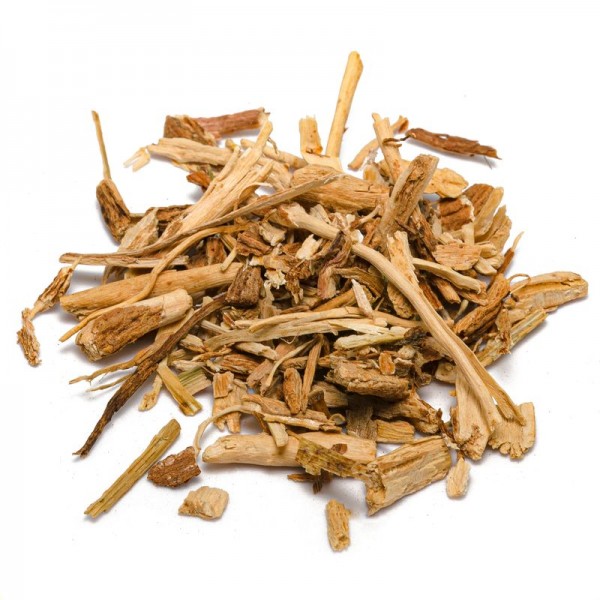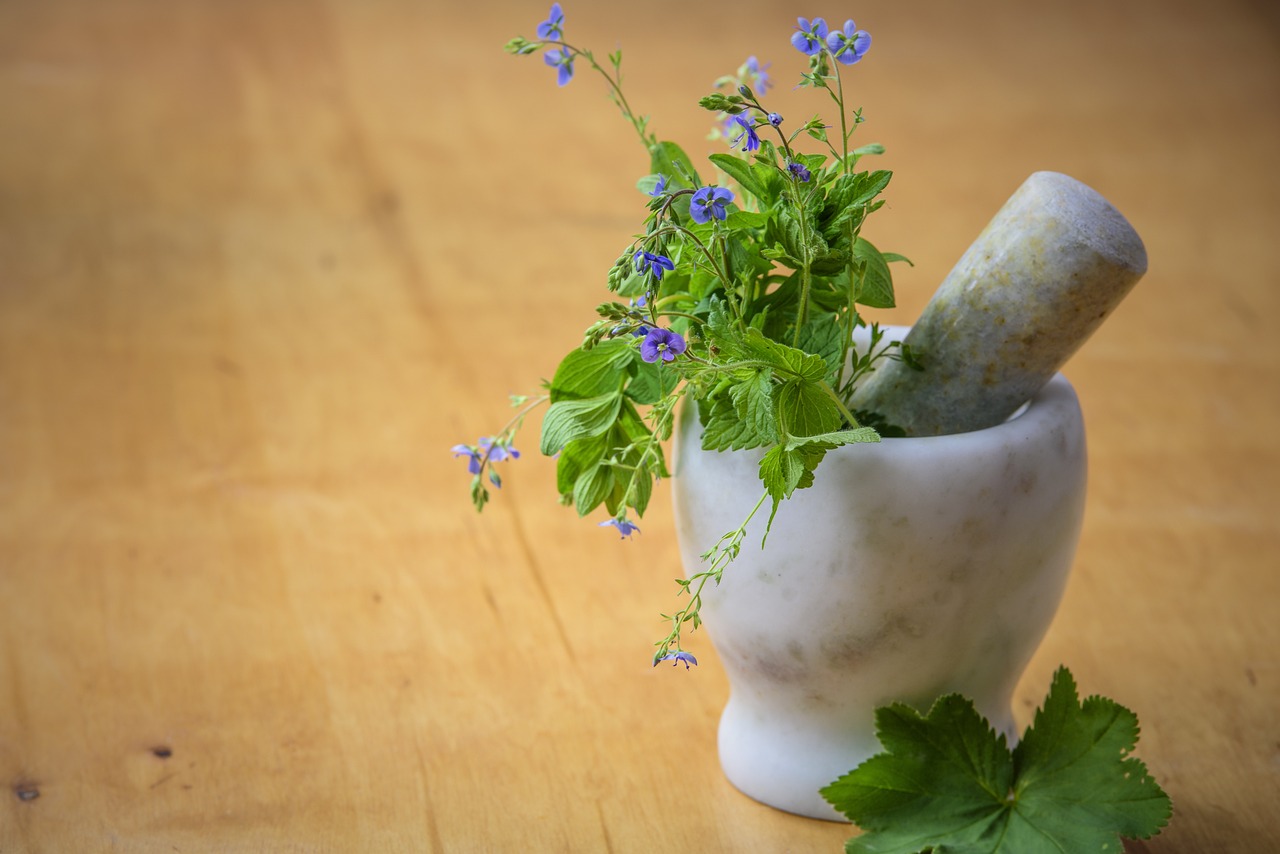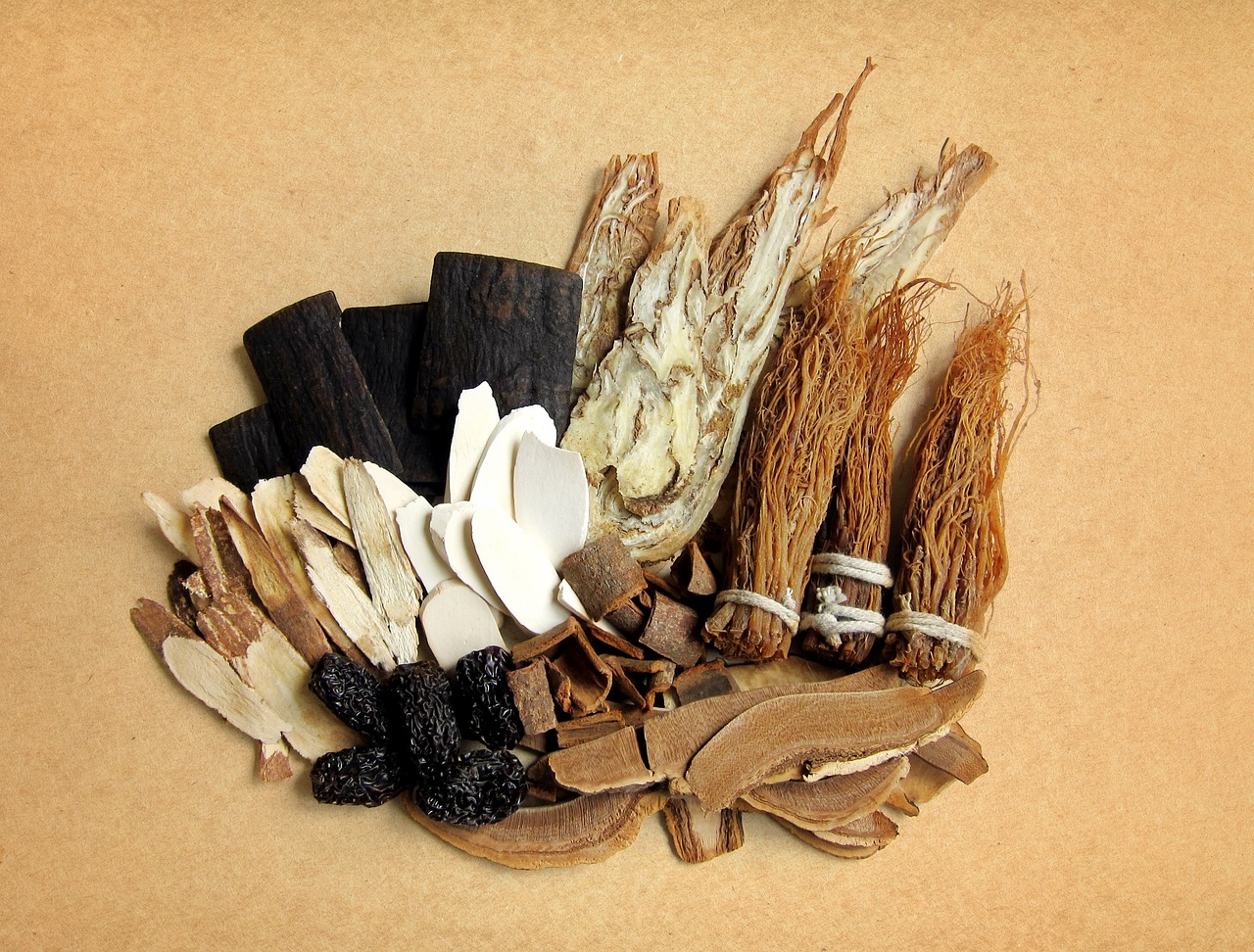Introduction
Asparagus, known for its delicate flavor and vibrant green spears, has not only graced our dinner tables but also played a significant role in traditional medicine and folklore across cultures for centuries. Beyond its culinary allure, this versatile vegetable has been recognized for its potential health benefits and its place in the rich tapestry of folk wisdom. In this article, we explore the fascinating historical and cultural journey of asparagus in traditional medicine and folklore.
Asparagus, with its slender, emerald-hued spears and subtle yet distinctive flavor, has woven itself into the culinary and cultural tapestry of civilizations throughout history. But its significance extends far beyond the dinner table; it has been revered and sought after for its potential health benefits and enigmatic role in traditional medicine and folklore. In delving into the rich historical and cultural narrative of asparagus, we unearth a story that transcends mere sustenance and enters the realm of ancient wisdom and healing traditions.
The Antiquity of Asparagus: Asparagus has been a cherished food source for millennia, with its origins tracing back to the eastern Mediterranean and Asia Minor. Its historical presence in Egyptian hieroglyphics, Greek writings, and Roman feasts attests to its esteemed status in the ancient world. Its appeal wasn’t solely gastronomic; it held a place of reverence in traditional medicine, where its therapeutic properties were first acknowledged.
Traditional Medicine’s Green Elixir: Asparagus was treasured for its potential medicinal virtues in various cultures. Ancient Egyptians believed it possessed diuretic properties, aiding in the purification of the body. In Ayurveda, the traditional medicine system of India, asparagus was regarded as a cooling and rejuvenating herb, valuable for its role in balancing bodily humors.
Folklore and Symbolism: Beyond its medicinal applications, asparagus was often enshrined in folklore and symbolism. In some cultures, it was considered an aphrodisiac, enhancing amorous feelings and desire. Its tender shoots breaking through the soil in the springtime were seen as a symbol of renewal and fertility.
The Renaissance of Asparagus: During the Renaissance, asparagus experienced a revival in European cuisine and medicine. Physicians like Leonhart Fuchs extolled its health benefits, and it graced the tables of nobility across the continent. Its association with vitality and well-being persisted, further enhancing its allure.
Contemporary Resurgence: In modern times, asparagus continues to be celebrated not only for its culinary versatility but also for its nutritional value. Its abundance of vitamins, minerals, and antioxidants makes it a welcome addition to a balanced diet.
A Tapestry of Tradition and Taste: The journey of asparagus through history is not merely a culinary one; it’s a testament to the enduring interplay between tradition and taste, between sustenance and symbolism. Its role in traditional medicine and folklore reminds us of the deep cultural connections that food can foster.
In this exploration, we embark on a journey that spans continents and centuries, uncovering the threads that weave asparagus into the fabric of human history. It’s a journey that reveals the enduring fascination with this versatile vegetable, not just for its flavors, but for its role in the ever-evolving narrative of health, culture, and tradition.
You can also read more about this here: Indian Traditional Ayurvedic System of Medicine and Nutritional …
The use of asparagus for medicinal purposes traces back to ancient civilizations. Both the ancient Greeks and Romans believed in its therapeutic properties. Hippocrates, the Greek physician known as the “Father of Medicine,” mentioned asparagus as a natural diuretic and cleansing agent. Romans consumed it to alleviate various ailments, particularly those related to the urinary system.
“The enduring belief in asparagus as a medicinal wonder spans millennia and transcends cultures, making it a true testament to the plant’s remarkable properties. As we delve into its historical significance, we uncover a treasure trove of wisdom passed down through the ages.
Ancient Wisdom Unearthed: The roots of asparagus’ medicinal use reach deep into antiquity, with both the ancient Greeks and Romans recognizing its therapeutic potential. In the hallowed annals of medical history, asparagus finds a prominent place, drawing on the profound insights of renowned figures.
Hippocrates and Natural Healing: Hippocrates, often hailed as the ‘Father of Medicine,’ bestowed upon asparagus a place of honor in his teachings. He hailed it as a natural diuretic, an agent that promotes healthy fluid balance in the body. Asparagus, according to Hippocrates, possessed the power to cleanse and detoxify, helping individuals maintain overall well-being.
The Roman Embrace: Across the Mediterranean, the Romans embraced asparagus not only for its exquisite taste but also for its therapeutic virtues. It was considered a valuable addition to their medicinal arsenal. Romans believed that asparagus held the key to addressing various ailments, with a particular focus on the urinary system.
Diuretic Efficacy: Asparagus’ diuretic properties were highly regarded by both civilizations. Its ability to increase urine production was seen as a valuable means of flushing toxins from the body and supporting kidney health. This diuretic effect was also associated with alleviating conditions like edema and urinary tract issues.
A Source of Vital Nutrients: Beyond its diuretic properties, asparagus was recognized for its rich nutritional content. It provided essential vitamins, minerals, and antioxidants that contributed to overall vitality and health.
A Culinary and Medicinal Gem: In the kitchens of ancient Greece and Rome, asparagus wore the dual hats of culinary delight and medicinal treasure. Its inclusion in meals was as much about flavor as it was about fostering well-being.
A Bridge to Modern Understanding: The reverence for asparagus in ancient times provides a bridge to our modern understanding of its nutritional and potential medicinal benefits. Contemporary research has revealed that asparagus is indeed a nutritional powerhouse, packed with vitamins, minerals, and antioxidants that support health and well-being.
In conclusion, the ancient Greeks and Romans, guided by their wisdom and keen observations, recognized asparagus as a gift from nature with both culinary and medicinal significance. Their reverence for this remarkable vegetable as a natural diuretic and cleansing agent serves as a historical testament to its enduring value. Today, we continue to appreciate asparagus not only for its delectable taste but also for the nourishment and potential health benefits it brings to our tables.”
To delve further into this matter, we encourage you to check out the additional resources provided here: Indian Traditional Ayurvedic System of Medicine and Nutritional …

Asparagus has often been celebrated for its diuretic and detoxifying effects. In traditional medicine, it was believed to help flush out toxins from the body, promote healthy kidney function, and relieve edema (swelling caused by fluid retention). Its diuretic properties were thought to aid in the elimination of excess salts and waste products.
Asparagus, cherished for its culinary allure, also boasts a rich history in traditional medicine for its potential diuretic and detoxifying prowess. Across cultures and centuries, it has been revered not only as a delightful addition to the plate but also as a natural remedy with multifaceted health benefits.
One of its most celebrated roles is its diuretic effect, which has long been associated with promoting healthy kidney function. Asparagus was believed to stimulate the kidneys, encouraging them to filter and expel waste products and excess salts more efficiently. This diuretic action was considered vital in maintaining the body’s fluid balance, preventing the buildup of harmful substances, and supporting overall well-being.
Moreover, asparagus was often recommended as a remedy for edema, the uncomfortable swelling caused by fluid retention. In traditional medicine, this swelling was thought to result from an imbalance in bodily fluids, and asparagus was believed to help correct it. By increasing urine production, it aided in reducing fluid buildup and alleviating the discomfort associated with edema.
Beyond its diuretic properties, asparagus was regarded as a detoxifying agent. Its unique combination of vitamins, minerals, and antioxidants was believed to assist the body in eliminating toxins and harmful compounds. This detoxification process was considered essential for maintaining good health and vitality.
While modern science continues to explore the precise mechanisms behind these traditional claims, there’s no denying the wholesome appeal of asparagus as a nutritious addition to one’s diet. Whether or not it possesses mystical detoxifying properties, its rich nutrient profile, including vitamins, minerals, and fiber, contributes to a balanced and health-conscious diet.
So, as you savor the delightful taste of asparagus, you can also appreciate its historical role as a health-enhancing vegetable. While we may no longer view it as a magical elixir for detoxification, its contribution to a nutritious and well-rounded diet is undeniable, making it a welcome addition to our culinary traditions and health-conscious choices.
Additionally, you can find further information on this topic by visiting this page: Consolidated list of Article 13 health claims List of references …

Asparagus has also been associated with love and fertility in various cultures. In ancient times, it was considered an aphrodisiac, possibly due to its phallic shape and vibrant green color. In some regions, newlyweds were even served asparagus dishes to promote fertility and a harmonious marriage.
Asparagus’ connection to love, fertility, and romance is a fascinating aspect of its cultural history that spans across various civilizations. This intriguing association goes beyond its visual symbolism and encompasses a rich tapestry of beliefs and traditions:
Ancient Symbolism: Asparagus’ phallic shape and vibrant green color have led to its enduring symbolism as a potent aphrodisiac. In many ancient cultures, the shape of asparagus spears was thought to resemble male vitality and virility. This visual similarity contributed to its reputation as a love-inducing vegetable.
Aphrodisiac Properties: While asparagus’ aphrodisiac reputation may be rooted in its appearance, it also contains certain nutrients that have been traditionally associated with enhancing desire and vitality. For instance, it is a good source of folate, which is crucial for reproductive health.
Wedding Symbolism: The connection between asparagus and love extended to wedding customs in some regions. Newlyweds were often served asparagus dishes as part of their celebratory feast. This practice was believed to bless the couple with fertility and a harmonious, passionate marriage.
Cultural Significance: Asparagus’ role in love and fertility rituals wasn’t limited to one culture. It found its place in the customs of various societies, including ancient Egyptian, Roman, and Greek traditions. The idea of asparagus as a symbol of love transcended geographical boundaries.
Seasonal Significance: In some regions, asparagus season coincided with the arrival of spring, a time traditionally associated with renewal, rebirth, and love. This alignment with the changing seasons may have further solidified its romantic symbolism.
Evolving Perceptions: While modern science has shed light on the nutritional benefits of asparagus, its reputation as an aphrodisiac endures more as a charming cultural relic. Today, asparagus is enjoyed for its taste and health benefits rather than its mythical powers.
Gastronomic Romance: Asparagus’ delicate flavor and versatility in the culinary world continue to inspire romantic meals. Whether roasted, grilled, or served in a delicate asparagus risotto, it remains a popular choice for romantic dinners.
Cultural Diversity: The association between asparagus and love serves as a reminder of the diversity of cultural beliefs and traditions. It’s a testament to how food can be intertwined with human emotions, rituals, and celebrations.
In conclusion, the age-old connection between asparagus and love is a delightful chapter in the cultural history of this cherished vegetable. While its aphrodisiac reputation may have evolved over time, the symbolism of asparagus as a symbol of love, fertility, and romance endures as a charming and intriguing aspect of its heritage. Today, asparagus remains a beloved culinary delight, celebrated not only for its cultural significance but also for its nutritional value and culinary versatility.
To expand your knowledge on this subject, make sure to read on at this location: Handbook of African Medicinal Plants

In different parts of the world, traditional healers and herbalists incorporated asparagus into their remedies. It was used to address a range of conditions, from digestive issues and menstrual disorders to arthritis and rheumatism. While modern medicine has advanced significantly, some traditional remedies continue to incorporate asparagus as a complementary therapy.
The historical use of asparagus in traditional medicine offers a fascinating glimpse into the enduring belief in its healing properties across cultures. In various corners of the world, asparagus was revered not only for its delectable taste but also for its potential therapeutic benefits. Here’s a deeper exploration of how asparagus found its place in traditional healing practices and its continued relevance in modern times:
Digestive Elixir: Asparagus earned a reputation as a digestive elixir in traditional healing systems. Its mild diuretic properties were believed to help flush toxins from the body and promote healthy digestion. Asparagus was often included in tonics and teas to alleviate bloating, indigestion, and other gastrointestinal discomforts.
Balancing Women’s Health: Traditional healers recognized asparagus as a valuable herb for addressing women’s health concerns. It was employed to alleviate menstrual disorders, ease premenstrual symptoms, and support overall reproductive health. The herb’s gentle nature made it a preferred choice for promoting hormonal balance.
Anti-Inflammatory Wonder: In regions where asparagus grew abundantly, it was hailed for its potential to combat inflammation. Herbalists incorporated asparagus into remedies for conditions like arthritis and rheumatism. Its anti-inflammatory properties were thought to help reduce pain and discomfort associated with these ailments.
Modern Herbalism: While modern medicine has evolved considerably, the legacy of asparagus in traditional healing systems endures. Some herbalists and holistic practitioners continue to incorporate asparagus into their herbal blends and wellness protocols. Its reputation for supporting digestive health and providing a gentle diuretic effect remains relevant in natural medicine.
Nutritional Powerhouse: Beyond its historical medicinal uses, asparagus boasts a nutritional profile that aligns with contemporary wellness principles. It is a rich source of vitamins, minerals, and antioxidants, making it a valuable addition to a balanced diet. Its high fiber content supports digestive health, and its array of vitamins and minerals contribute to overall well-being.
Culinary and Medicinal Fusion: Asparagus beautifully bridges the gap between culinary delight and potential health benefits. Modern consumers can savor asparagus in diverse dishes while appreciating its nutritional contributions. Whether roasted, steamed, or grilled, asparagus adds a burst of flavor and nutrition to meals, making it a staple in both the kitchen and the herbal medicine cabinet.
In conclusion, the historical reverence for asparagus in traditional healing practices speaks to its enduring appeal as a plant with potential health benefits. While modern medicine has revolutionized healthcare, asparagus continues to hold a special place in holistic wellness. Its legacy as a digestive aid, hormonal balancer, and anti-inflammatory herb lives on, offering a bridge between the wisdom of the past and the possibilities of the present in pursuit of optimal health and vitality.
Explore this link for a more extensive examination of the topic: Indian Herbs and Herbal Drugs Used for the Treatment of Diabetes …

Asparagus has not only been valued for its potential healing properties but has also found its way into folklore and cultural symbolism. In some regions, asparagus was regarded as a symbol of prosperity and good fortune, often included in festive celebrations and rituals.
Beyond its culinary significance, asparagus has woven itself into the tapestry of human culture, taking on roles that extend far beyond the dinner plate. It has, over time, become a symbol with deep-rooted meanings, celebrated in folklore and cultural traditions around the world. Let’s delve into the fascinating world of asparagus symbolism and its rich cultural connections.
A Symbol of Prosperity: In various regions, asparagus has been embraced as a symbol of prosperity and good fortune. Its slender, upright stalks and vibrant green color are often associated with growth and abundance. For centuries, people have believed that cultivating asparagus could bring economic prosperity to households, making it a favored vegetable in gardens and fields. Its seasonal emergence in the spring was seen as a sign of renewal and the promise of a bountiful year ahead.
Festive Celebrations: Asparagus’s symbolic value extends to festive celebrations and rituals. In some cultures, asparagus holds a special place in wedding traditions, symbolizing wishes for a prosperous and fruitful union. It’s not uncommon to find asparagus featured prominently in wedding banquets and decorations, underscoring the hopes for a flourishing and enduring marriage.
Health and Vitality: Beyond its associations with wealth, asparagus has also been linked to health and vitality. In ancient times, its potential healing properties were revered, and it was used in various remedies and tonics. Some cultures considered it an aphrodisiac, believing it had the power to enhance fertility and passion. These beliefs contributed to its inclusion in wedding rituals, reinforcing the idea of a fertile and loving partnership.
Cultural Significance: Asparagus’s cultural significance is not limited to its symbolism in celebrations and rituals. It has also been referenced in literature, art, and even in proverbs and sayings. Its unique appearance and role in society have made it a subject of fascination and inspiration for many.
A Timeless Emblem: In a world where cultural symbols often evolve or fade away, asparagus remains a timeless emblem of growth, abundance, and the promise of good things to come. Its journey from the soil to the table, and from there into the hearts of cultures worldwide, showcases the enduring power of nature to inspire and enrich the human experience.
As we savor the delicate flavor of asparagus, it’s worth taking a moment to appreciate the depth of meaning and cultural resonance that this humble vegetable carries with it. It’s a reminder of the profound ways in which nature’s gifts can shape our traditions, beliefs, and celebrations, making the act of enjoying asparagus an experience that transcends taste and nourishes the soul.
Should you desire more in-depth information, it’s available for your perusal on this page: Indian Traditional Ayurvedic System of Medicine and Nutritional …

While traditional beliefs surrounding asparagus have historical significance, modern scientific research has shed light on its nutritional benefits. Asparagus is a rich source of essential nutrients, including folate, fiber, and vitamins A and K. It also contains compounds like antioxidants and saponins, which have garnered attention for their potential health-promoting properties.
Indeed, the intersection of tradition and modern science has unveiled a treasure trove of nutritional benefits within asparagus, solidifying its place as a superfood in our contemporary diet. Let’s delve deeper into the nutritional marvels that asparagus brings to the table:
Folate, the B-Vitamin Champion: Asparagus is celebrated for its impressive folate content. Folate, a member of the B-vitamin family, plays a pivotal role in DNA synthesis, cell division, and the formation of red blood cells. It’s particularly vital for pregnant women, as it supports fetal development and reduces the risk of neural tube defects.
Fiber for Digestive Health: Asparagus is a reliable source of dietary fiber, which is essential for digestive health. Fiber aids in regular bowel movements, prevents constipation, and supports a healthy gut microbiome. It also contributes to a feeling of fullness, making it beneficial for weight management.
Vitamins A and K: Asparagus doesn’t shy away from delivering essential vitamins. It’s rich in vitamin A, promoting healthy vision, skin, and immune function. Additionally, it boasts an abundance of vitamin K, crucial for blood clotting and bone health.
Antioxidant Arsenal: Asparagus is armed with a variety of antioxidants, such as vitamin C, vitamin E, and glutathione. These compounds combat oxidative stress and inflammation in the body, potentially reducing the risk of chronic diseases and supporting overall well-being.
Saponins’ Potential: Asparagus contains saponins, natural compounds with intriguing health potential. Some studies suggest that saponins may have anti-inflammatory and immune-boosting properties, contributing to overall health and disease prevention.
Detoxification Support: Asparagus is renowned for its natural diuretic properties, which can promote the flushing of toxins and excess fluids from the body. This detoxifying effect may contribute to improved kidney function and reduced bloating.
Low in Calories, High in Nutrition: One of the remarkable aspects of asparagus is its nutritional density. It provides a wealth of essential nutrients while remaining low in calories, making it an excellent choice for those looking to maintain a balanced and health-conscious diet.
Versatile Culinary Delight: Beyond its nutritional prowess, asparagus is a versatile ingredient in the kitchen. Whether roasted, grilled, steamed, or sautéed, it lends its unique flavor and texture to a wide range of culinary creations, making it easy to incorporate into a diverse and nutritious diet.
In conclusion, asparagus transcends its historical significance to emerge as a nutritional powerhouse in contemporary cuisine. Its folate, fiber, vitamins, antioxidants, and saponins make it a valuable addition to a health-conscious diet, offering a multitude of benefits ranging from digestive health to immune support. As we blend tradition with scientific knowledge, asparagus continues to shine as a culinary gem that nourishes both body and soul.
For additional details, consider exploring the related content available here Untitled

The culinary and medicinal aspects of asparagus often intersect. Today, many people enjoy asparagus not only for its delicious taste but also for the potential health benefits it offers. Its nutritional profile supports overall well-being, making it a valuable addition to a balanced diet.
The timeless allure of asparagus extends far beyond its culinary charm, as this remarkable vegetable has found a place not only on our plates but also in our pursuit of well-being and vitality. The convergence of culinary delight and medicinal potential within asparagus makes it a true gem in the world of nutrition.
The Delicious and Nutrient-Rich Feast: Asparagus has always delighted our taste buds with its delicate yet distinctive flavor. Whether lightly roasted, grilled, or steamed, it graces our plates with its tender crunch and earthy sweetness. But as we savor each bite, we’re also indulging in a nutrient-rich feast. Asparagus is a treasure trove of vitamins, minerals, and antioxidants, including vitamins A, C, and K, folate, potassium, and dietary fiber. This nutritional bounty not only enhances the dining experience but also provides essential building blocks for our health.
A Multitude of Health Benefits: Beyond its delightful taste, asparagus has earned its reputation as a nutrient powerhouse with the potential to bolster our well-being. Its folate content, for instance, is essential for cell division and the synthesis of DNA, making it particularly crucial during pregnancy. Asparagus is also a source of vitamin K, which plays a pivotal role in blood clotting and bone health.
Antioxidants for Defense: Asparagus further distinguishes itself with its robust antioxidant content. Antioxidants, such as vitamin C and vitamin A, are the body’s natural defense against oxidative stress and free radical damage. By incorporating asparagus into our diets, we harness the power of these antioxidants to protect our cells and tissues, potentially reducing the risk of chronic diseases and supporting overall health.
Promoting Digestive Wellness: Asparagus is a source of dietary fiber, a nutrient essential for digestive wellness. Fiber aids in maintaining regular bowel movements, preventing constipation, and supporting a healthy gut microbiome. By contributing to digestive health, asparagus plays a role in overall physical comfort and vitality.
A Balanced Diet Essential: Asparagus isn’t a miracle cure, but it is a valuable piece of the puzzle when it comes to maintaining a balanced diet. Its unique combination of nutrients complements the array of foods needed for a well-rounded, healthful eating plan. When we incorporate asparagus into our meals, we enhance our nutritional diversity, supporting our bodies in various ways.
In the modern pursuit of wellness, asparagus stands as a testament to the intricate dance between taste and nutrition. It reminds us that food can be both delicious and healthful, offering a harmonious blend of flavors and nutrients. By embracing asparagus in our diets, we not only savor its culinary delights but also nourish our bodies, contributing to a life filled with vitality and well-being.
Should you desire more in-depth information, it’s available for your perusal on this page: The Transnational History of a Chinese Family

Conclusion
In conclusion, asparagus has a long and storied history in traditional medicine and folklore. While some of its medicinal uses may have evolved over time, the cultural significance and appreciation for this vegetable endure. Whether cherished for its potential healing properties or celebrated as a symbol of fertility and prosperity, asparagus continues to be a remarkable and multifaceted plant that enriches both our plates and our cultural heritage.
In the rich tapestry of human history, asparagus stands as a testament to the enduring connection between nature, culture, and well-being. Its journey through traditional medicine and folklore has been a captivating one, revealing the intricate ways in which plants can weave themselves into the fabric of our lives.
1. A Living Chronicle: Asparagus, with its deep roots in traditional medicine, serves as a living chronicle of our ancestors’ wisdom and resourcefulness. Over the ages, it has been prescribed for an array of ailments, from digestive discomfort to kidney health. While some of these medicinal uses may have evolved or been refined, the fact remains that asparagus has been a source of healing and nourishment for generations.
2. Cultural Tapestry: Beyond its medicinal applications, asparagus has woven itself into the cultural tapestry of various societies. Its seasonal appearance has often marked the arrival of spring, symbolizing renewal and the cyclical nature of life. In many cultures, the tender shoots of asparagus have been celebrated as a harbinger of fertility and prosperity, and they have graced tables during festive occasions and rituals.
3. Culinary Heritage: Asparagus has not only graced the annals of traditional medicine and folklore but has also made an indelible mark on our culinary heritage. Its unique flavor and versatility have inspired countless recipes and culinary traditions worldwide. From elegant asparagus soufflés to rustic grilled preparations, it continues to captivate the palates of those who appreciate its fresh, earthy taste.
4. A Connection to Nature: In our modern, fast-paced world, the appreciation for asparagus serves as a reminder of our connection to the natural world. It encourages us to honor the seasons, respect the earth’s rhythms, and savor the gifts of the land. Asparagus, in its various forms, beckons us to slow down, to celebrate the changing of seasons, and to appreciate the bounty that nature provides.
5. A Plant of Many Facets: Asparagus is a plant of many facets—culinary, medicinal, and cultural. Its enduring presence in our lives, from ancient medicinal texts to contemporary dinner tables, attests to its timeless appeal. It teaches us that the appreciation of nature’s gifts can be both practical and profound, that a simple vegetable can hold both sustenance and symbolism.
In conclusion, asparagus is a remarkable thread in the intricate tapestry of human history and culture. Its journey from traditional medicine to folklore, and its enduring presence in our culinary and cultural heritage, exemplify the profound and multifaceted relationship between humans and the natural world. Asparagus continues to remind us that, at the heart of it all, lies a profound connection to the earth and the timeless wisdom it imparts.
For additional details, consider exploring the related content available here Indian Traditional Ayurvedic System of Medicine and Nutritional …
More links
Additionally, you can find further information on this topic by visiting this page: Shatavari: Health benefits, uses, and evidence
